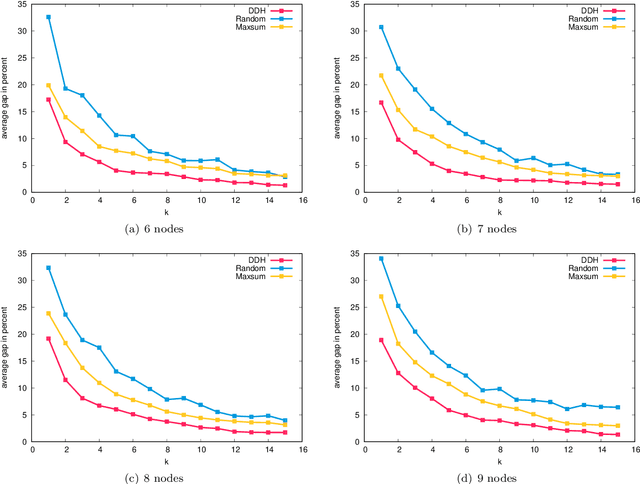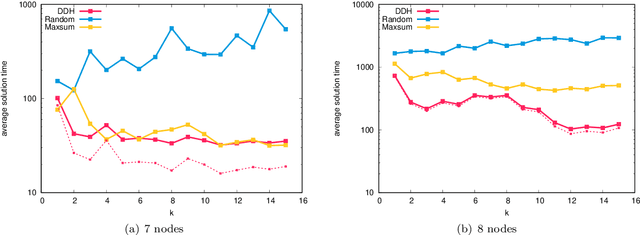Data-driven Prediction of Relevant Scenarios for Robust Optimization
Paper and Code
Mar 30, 2022



In this work we study robust one- and two-stage problems with discrete uncertainty sets which are known to be hard to solve even if the underlying deterministic problem is easy. Popular solution methods iteratively generate scenario constraints and possibly second-stage variables. This way, by solving a sequence of smaller problems, it is often possible to avoid the complexity of considering all scenarios simultaneously. A key ingredient for the performance of the iterative methods is a good selection of start scenarios. In this paper we propose a data-driven heuristic to seed the iterative solution method with a set of starting scenarios that provide a strong lower bound early in the process, and result in considerably smaller overall solution times compared to other benchmark methods. Our heuristic learns the relevance of a scenario by extracting information from training data based on a combined similarity measure between robust problem instances and single scenarios. Our experiments show that predicting even a small number of good start scenarios by our method can considerably reduce the computation time of the iterative methods.
 Add to Chrome
Add to Chrome Add to Firefox
Add to Firefox Add to Edge
Add to Edge